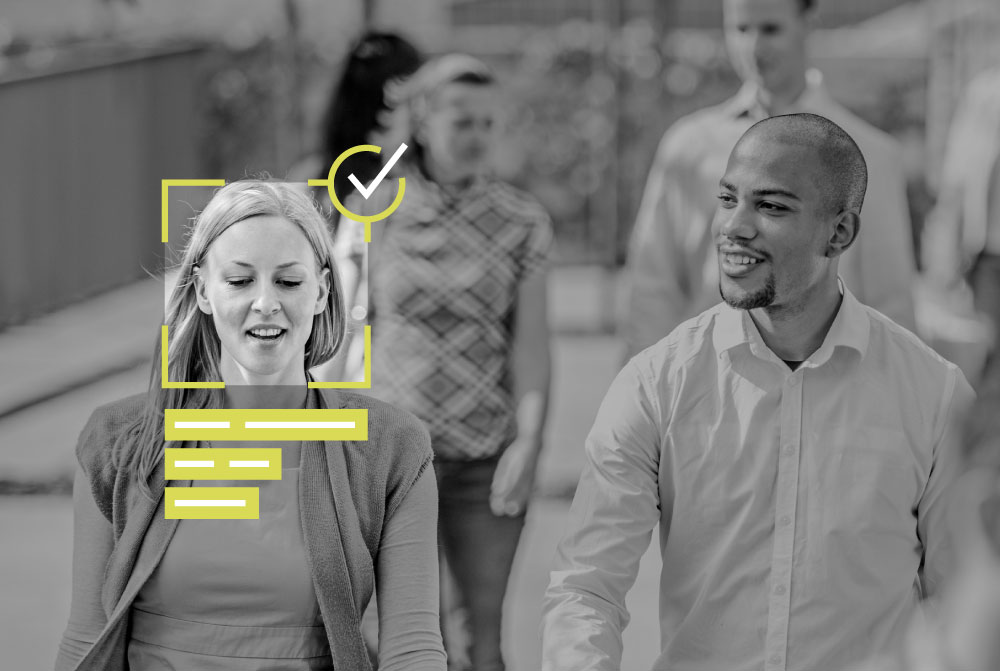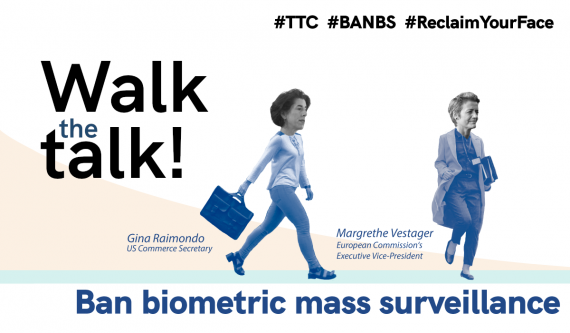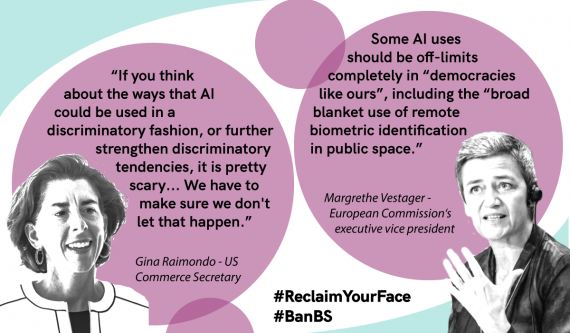Nope, Europa werkt met een QR code, de rest van de wereld werkt met een vaccinatie paspoort naar model van de WHO (geel boekje)
Staat ook niet voor niets in de wet vastgesteld als officieel document.
Wet Publieke Gezondheid artikel 58.
Nope, Europa werkt met een QR code, de rest van de wereld werkt met een vaccinatie paspoort naar model van de WHO (geel boekje)
Staat ook niet voor niets in de wet vastgesteld als officieel document.
Wet Publieke Gezondheid artikel 58.
Hoe lang nog?
Ik denk dat er geen herdruk van de gele boekjes komt.
@Sven
Op zich een logische gedachte om de posts over het ‘gele boekje’ te verplaatsen naar het topic over Corona/vaccinatiepaspoort. De posts die hier zijn geplaatst hebben echter betrekking op internationaal verkeer n.a.v. het artikel over Digital Identity, dus op Europees niveau (waarvoor dit topic ook is bedoeld) waar nu invulling aan wordt gegeven.
Het topic over het nationaal overheidsbeleid t.a.v. vaccinatie/coronabewijs (het andere topic dus) is gericht op het openen van ons land met verplichting van toegang met ‘een’ bewijs , de daarvoor geopperde mogelijkheden en gevolgen van (tijdelijke) maatregelen en acceptatiegraad.
Aankomende maand komt er weer een nieuw test event aan. Dit betreft alles wat internet heet. En als dat na dit event geactiveerd wordt. Zeg dan maar dag dag vrijheden online.
Hier is de website: https://cyberpolygon.com
Fijn toch hè èèn Europa. Dit terwijl wij in Nederland 5 juni 2005 NEE tegen Europa hebben gezegt met 61,3% van de referedum stemmen. Of waren we dit alweer vergeten met z’n alle.
EU-rechter staat registreren IP-adressen van p2p-users voor schadevordering toe
Het Hof van Justitie van de EU heeft bepaald dat het systematisch registreren van IP-adressen van gebruikers van peer-to-peernetwerken die mediabestanden delen, onder voorwaarden is toegestaan. Het gaat hier om het verzamelen van namen en adressen voor een schadevordering.
In deze zaak draait het om het bedrijf Mircom, dat bij de Antwerpse ondernemingsrechtbank een verzoek om infomatie heeft ingediend tegen de provider Telenet. Mircom wil hiermee afdwingen dat Telenet aan de hand van een aantal IP-adressen identificatiegegevens van Telenet-klanten overhandigt. Het gaat om IP-adressen die een gespecialiseerd bedrijf voor Mircom heeft verzameld. Mircom is de houder van de intellectuele-eigendomsrechten en wil de gegevens gebruiken om schadevorderingen in te stellen jegens de individuele gebruikers. Telenet verzette zich tegen dit verzoek, onder meer omdat Mircom de rechten niet exploiteert.
EU.pdf (257,8 KB)
cp210105nl.pdf (160,5 KB)

Facial recognition technology brings benefits that can make aspects of our lives easier, more efficient and more secure. The technology allows us to unlock our mobile phones, set up a bank account online, or go through passport control.
But when the technology and its algorithms are used to scan people’s faces in real time and in more public contexts, the risks to people’s privacy increases.
I am deeply concerned about the potential for live facial recognition (LFR) technology to be used inappropriately, excessively or even recklessly. When sensitive personal data is collected on a mass scale without people’s knowledge, choice or control, the impacts could be significant.
We should be able to take our children to a leisure complex, visit a shopping centre or tour a city to see the sights without having our biometric data collected and analysed with every step we take.
Unlike CCTV, LFR and its algorithms can automatically identify who you are and infer sensitive details about you. It can be used to instantly profile you to serve up personalised adverts or match your image against known shoplifters as you do your weekly grocery shop.
In future, there’s the potential to overlay CCTV cameras with LFR, and even to combine it with social media data or other “big data” systems – LFR is supercharged CCTV.
It is not my role to endorse or ban a technology but, while this technology is developing and not widely deployed, we have an opportunity to ensure it does not expand without due regard for data protection.
Therefore, today I have published a Commissioner’s Opinion on the use of LFR in public places by private companies and public organisations. It explains how data protection and people’s privacy must be at the heart of any decisions to deploy LFR. And it explains how the law sets a high bar to justify the use of LFR and its algorithms in places where we shop, socialise or gather.
The Opinion is rooted in law and informed in part by six ICO investigations into the use, testing or planned deployment of LFR systems, as well as our assessment of other proposals that organisations have sent to us. Uses we’ve seen included addressing public safety concerns and creating biometric profiles to target people with personalised advertising.
It is telling that none of the organisations involved in our completed investigations were able to fully justify the processing and, of those systems that went live, none were fully compliant with the requirements of data protection law. All of the organisations chose to stop, or not proceed with, the use of LFR.
With any new technology, building public trust and confidence in the way people’s information is used is crucial so the benefits derived from the technology can be fully realised.
In the US, people did not trust the technology. Some cities banned its use in certain contexts and some major companies have paused facial recognition services until there are clearer rules. Without trust, the benefits the technology may offer are lost.
And, if used properly, there may be benefits. LFR has the potential to do significant good – helping in an emergency search for a missing child, for example.
Today’s Opinion sets out the rules of engagement. It builds on our Opinion into the use of LFR by police forces and also sets a high threshold for its use.
Organisations will need to demonstrate high standards of governance and accountability from the outset, including being able to justify that the use of LFR is fair, necessary and proportionate in each specific context in which it is deployed. They need to demonstrate that less intrusive techniques won’t work.
These are important standards that require robust assessment.
Organisations will also need to understand and assess the risks of using a potentially intrusive technology and its impact on people’s privacy and their lives. For example, how issues around accuracy and bias could lead to misidentification and the damage or detriment that comes with that.
My office will continue to focus on technologies that have the potential to be privacy invasive, working to support innovation while protecting the public. Where necessary we will tackle poor compliance with the law.
We will work with organisations to ensure that the use of LFR is lawful, and that a fair balance is struck between their own purposes and the interests and rights of the public. We will also engage with Government, regulators and industry, as well as international colleagues to make sure data protection and innovation can continue to work hand in hand.
 Elizabeth Denham was appointed UK Information Commissioner on 15 July 2016, having previously held the position of Information and Privacy Commissioner for British Columbia, Canada.
Elizabeth Denham was appointed UK Information Commissioner on 15 July 2016, having previously held the position of Information and Privacy Commissioner for British Columbia, Canada.
https://digitalcourage.de/blog/2021/PaperBagSociety
Het wordt druk met privacy-organisaties die zich scharen tegen het biometrie en surveillancebeleid. Alleen die zak over onze hoofd is een beetje warm in deze tijd wanneer iedereen in de veronderstelling is dat ze eindelijk dat mondkapje af kunnen doen.
UPDATE: Artificial Intelligence en Biometrische surveillance
Je kunt helpen door het collectieve initiatief direct te steunen via
https://reclaimyourface.eu/ of via lopende campagne via Bits of Freedom
Op diverse fronten zijn privacy-organisaties momenteel zeer actief. Wat wij als leden kunnen doen is onze steun betuigen aan bovengenoemde projecten zoals Reclaim your Face (kleine moeite?) net zo goed als onze provider Freedom Internet als supporter een vuist maakt via initiatieven zoals Tracking Free Ads
Date 07 September 2021
The UK Information Commissioner’s Office (ICO) will today call on fellow G7 data protection and privacy authorities to work together to overhaul cookie consent pop-ups, so people’s privacy is more meaningfully protected and businesses can provide a better web browsing experience.
Chairing the meeting, Information Commissioner Elizabeth Denham will virtually meet the G7 authorities on 7-8 September. At the meeting, she will present an idea on how to improve the current cookie consent mechanism, making web browsing smoother and more business friendly while better protecting personal data.
Currently many people automatically select ‘I agree’ when presented with cookies pop-ups on the internet, which means they are not having meaningful control over their personal data.
Information Commissioner Elizabeth Denham said:
“I often hear people say they are tired of having to engage with so many cookie pop-ups. That fatigue is leading to people giving more personal data than they would like.
“The cookie mechanism is also far from ideal for businesses and other organisations running websites, as it is costly and it can lead to poor user experience. While I expect businesses to comply with current laws, my office is encouraging international collaboration to bring practical solutions in this area.
“There are nearly two billion websites out there taking account of the world’s privacy preferences. No single country can tackle this issue alone. That is why I am calling on my G7 colleagues to use our convening power. Together we can engage with technology firms and standards organisations to develop a coordinated approach to this challenge.”
Joined by the Organisation for Economic Cooperation and Development (OECD) and the World Economic Forum (WEF), each G7 authority will present a specific technology or innovation issue they believe closer cooperation is needed. The event is closely aligned with the G7 “Data Free Flow with Trust” initiative.
The ICO will present its vision for the future, where web browsers, software applications and device settings allow people to set lasting privacy preferences of their choosing, rather than having to do that through pop-ups every time they visit a website. This would ensure people’s privacy preferences are respected and the use of personal data is minimised, while improving users’ browsing experience and removing friction for businesses.
While this approach is already technologically possible and compliant with data protection law, the ICO believes the G7 authorities could have a major impact in encouraging technology firms and standards organisations to further develop and roll out privacy-oriented solutions to this issue.
Ms Denham added:
“The digital world brings international opportunities and challenges, but these are currently being addressed by a series of domestic solutions. We need to consider how the work of governments and regulators can be better knitted together, to keep people’s trust in data driven innovation.”
Background
The G7 data protection and privacy authorities consist of:
G7 authorities are meeting virtually on 7-8 September, joined by the Organisation for Economic Cooperation and Development (OECD) and the World Economic Forum (WEF). The event is closely aligned with the G7 “Data Free Flow with Trust” initiative. A communique will be published following the event.
of een samenvatting in het Nederlands:
dinsdag 7 september 2021, 11:22 Bron: Security.nl
De Britse privacytoezichthouder ICO zal vandaag de privacytoezichthouders van andere G7-landen vragen om mee te werken aan het aanpassen van de huidige cookiemeldingen die websites tonen, wat de privacy van internetgebruikers beter zou moeten beschermen.
Volgens de ICO kiezen veel mensen nu automatisch “accepteren” wanneer ze een cookiemelding te zien krijgen en hebben zo’n geen betekenisvolle controle over hun persoonlijke data. “Ik hoor vaak van mensen dat ze al die cookiemeldingen zat zijn. Die vermoeidheid zorgt ervoor dat mensen meer persoonlijke data weggeven dan ze zouden willen”, zegt de Britse informatiecommissaris Elizabeth Denham.
Ze stelt dat de cookiemeldingen niet ideaal voor bedrijven en andere organisaties zijn die websites exploiteren, aangezien het kostbaar is en voor een slechte gebruikerservaring zorgt. Door met andere toezichthouders samen te werken wil Denham tot een gecoördineerde en gezamenlijke aanpak van het probleem komen. Gebruikers zouden dan via hun browser, andere applicaties of apparaat hun voorkeuren aangeven, in plaats van dat ze steeds allerlei cookiemeldingen te zien krijgen.
“Dit zorgt ervoor dat de privacyvoorkeuren van mensen worden gerespecteerd en het gebruik van persoonlijke data wordt beperkt, terwijl de browse-ervaring van gebruikers wordt verbeterd en frictie voor bedrijven wordt weggenomen”, aldus de ICO. De privacytoezichthouder merkt op dat deze aanpak technisch al mogelijk is en aan bestaande databeschermingswetgeving voldoet. De G7-autoriteiten zouden daarbij techbedrijven en standaardenorganisaties kunnen aanmoedigen om op privacygerichten oplossingen voor dit probleem verder te ontwikkelen en uit te rollen.
Zorgt dit er niet veel meer voor,
dat je heel veel websites niet kunt bezoeken ?
Dan gaan ze wel een stukje programma verzinnen om snel even jouw beperkingen in de webbrowser UIT te zetten …
( en krijg je DIE pop-ups weer )
De Europese Commissie (EC) heeft haar ‘Rolling Plan for ICT Standardisation 2021’ (Engels) gepubliceerd, met de relevante ontwikkelingen rond ICT-standaardisatie op allerlei beleidsniveau’s. Dit is een bestaand Rolling Plan waaraan we inmiddels wel een aantal situaties kunnen toetsen zoals de voorgenomen ontwikkelingen op onderwijs en covid-19.
@Drs_W
Ja dat lijkt me ook, maar ik reken erop dat de Britten dit voorstel niet ondoordacht naar voren hebben gebracht. Het lijkt de moeite waard om hun vorderingen te volgen. Ik vermoed dat er een Brave-browser achtig verdienmodel in stelling zal worden gebracht.
dinsdag 21 september 2021, 13:20 Bron: Security.nl
De privégegevens van meer dan 106 miljoen internationale bezoekers van Thailand was voor iedereen op internet via een open onbeveiligde database toegankelijk. Het gaat om namen, paspoortnummers, aankomstdatum, geslacht, visumtype, verblijfsstatus en aankomstkaartnummer die in de tweehonderd gigabyte grote Elasticsearch-database stonden.
Dit is zoekmachinesoftware voor het indexeren van allerlei soorten informatie. Het wordt onder andere ingezet voor het doorzoeken van websites, documenten en applicaties, maar is ook te gebruiken voor analytics, monitoring en data-analyse. De database was op 20 augustus door zoekmachine Censys geïndexeerd.
Drie dagen later ontdekte beveiligingsonderzoeker Bob Diachenko van Comparitech de database en waarschuwde de Thaise overheid. De database werd vervolgens beveiligd. Het ip-adres van de database is nog steeds openbaar, maar de database zelf is vervangen door een honeypot. Volgens de Thaise autoriteiten is de data niet door ongeautoriseerde partijen benaderd.
UPDATE inzake ePrivacy wetgeving/AdTech, brief EDRi - mede namens Bits of Freedom
Voor iedereen die gebruik maakt van Twitter en wil bijdragen:

Dear digital rights supporter,
We need your help TODAY, to put pressure on an important meeting between EU and US representatives happening tomorrow: the Technology and Trade Council (TTC). This meeting can influence the faith of biometric mass surveillance in EU and globally.
Click and TWEET!
On 29 September, the EU and US high-level representatives will start work on a “common toolkit to measure and evaluate the use of biometric identification, including facial recognition.”
There can’t be a ‘toolkit’ for something that shouldn’t exist. Our rights are not negotiable, nor can be traded!
Among the EU – US representatives meeting Wednesday are the European Commissioner Margrethe Vestager and US Sec. Gina Raimondo.
They both spoke like true human rights defenders in June, when they agreed on the dangers of biometric mass surveillance.
Will Margrethe Vestager and Gina Raimondo WALK THE TALK on 29 September?

Kind reminder:
Read the latest news on our work to ban biometric mas surveillance across EU.
READ MORE
Thank you for being on the right side of history,
Andreea and the #ReclaimYourFace team
Het Europees Comité voor gegevensbescherming (EDPB) is gestart met het opzetten van een Cookie Banner Taskforce ter ondersteuning van privacy-toezichthouders
In Duitsland is dit meteen opgepikt en wordt er via hun ‘Consumentenbond’ meteen werk gemaakt van het bewustzijn met een uitgebreide campagne. In Nederland volgen hopelijk ook initiatieven.
Zie ook berichtgeving Security.nl
dinsdag 28 september 2021, 11:05 Bron: Security.nl**
Het Europees Comité voor gegevensbescherming (EDPB), een orgaan waarin alle nationale privacytoezichthouders uit de Europese Unie samenwerken, is een taskforce gestart voor klachten over cookiemeldingen. Het gaat dan specifiek om klachten afkomstig van noyb, de door privacyactivist Max Schrems opgerichte organisatie.
Noyb verstuurde eerder dit jaar honderden klachten naar bedrijven over cookiemeldingen die volgens de organisatie niet aan de regels van de AVG voldoen. De klachten werden automatisch gegenereerd door software die noyb ontwikkelde en verschillende soorten cookiemeldingen kan herkennen. De privacyorganisatie stelt dat veel cookiemeldingen zo zijn opgesteld dat het erg lastig is om op iets anders dan “accepteren” te klikken.
Daarbij stelt noyb dat bedrijven ook van “dark patterns” gebruikmaken, waardoor meer dan negentig procent van de gebruikers op accepteren klikt, terwijl uit onderzoek blijkt dat slechts drie procent van de gebruikers daadwerkelijk akkoord wil gaan. “Het frustreren van mensen om op “oké” te klikken is een duidelijke schending van de AVG-regels”, aldus Schrems in mei van dit jaar.
Op 31 mei van dit jaar stuurde noyb naar meer dan vijfhonderd bedrijven een klacht over hun cookiemeldingen. 42 procent van de overtredingen werd vervolgens binnen dertig dagen verholpen. Noyb laat weten dat 82 procent van de bedrijven nog altijd in strijd met de AVG handelt. Daarop diende noyb in augustus bij tien Europese privacytoezichthouders in totaal 422 klachten in.
Het EDPB is nu een “cookie banner taskforce” gestart die standpunten en juridische analyses van mogelijke overtredingen zal uitwisselen, ondersteuning op nationaal niveau zal bieden en de communicatie tussen de verschillende toezichthouders zal stroomlijnen.